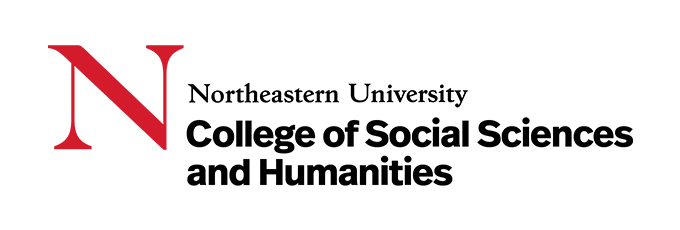In a world where knowledge is the compass, Northeastern University doesn’t just hand its students a map — it thrusts them directly into the terrain. Here, education isn’t confined to lecture halls and textbooks; it’s a dynamic journey where learning by doing in real-world organizations is essential. For over a century, the institution has been a world leader in cooperative education (co-op), ensuring all learners — both domestic and international — are primed for professional success.
“For many of our international students, this is the first opportunity they have to work in the US,” explains Senior Co-op Coordinator and Associate Director of CSSH Co-op Linnea Basu. “They improve their communication, technical, and analytical skills. The experience positions them better for the full-time job market, regardless of where they want to work post-graduation.”
Basu advises on co-op with graduate students from the university’s College of Social Sciences and Humanities (CSSH), a leader in the Experiential Liberal Arts. It offers a range of master’s and certificate programs — all of which include the option for six-month work experiences under the signature co-op program. “The process is much like a real-world, full-time job search,” explains Basu.
Students are encouraged to review co-op positions with partner organizations and choose those that best align with their career goals. Of course, the process is not one they have to go about alone. All are assigned a co-op coordinator who provides guidance and support throughout. Northeastern’s commitment to student success extends to the digital realm, too. To complement the personalized support, the university offers online Canvas modules, which play a key role in walking students through the ins and outs of a successful job hunt.
“It’s a competitive process, so we work with students to develop them into the best candidate they can be based on their interests, skills, and experience,” says Basu.

Linnea Basu. Source: Northeastern University
The theme of support persists throughout their placement and beyond. Co-op coordinators remain an essential point of contact. Students can address any questions, concerns, or challenges that may arise while they are on the job. Since they will be working full-time in a paid position, they will not be required to join classes for that time period.
While this may extend the program slightly, the value of gaining real-world experience during co-op enriches their education and equips them with a versatile skill set that can be leveraged across a range of industries. And CSSH has something for everyone — no matter how interdisciplinary their long-term goals may be.
The College bridges the gaps between technology, data, and the social sciences through four Master of Science programs. The MS Applied Quantitative Methods and Social Analysis provides training in quantitative research methods and social analysis techniques.
The MS Security and Resilience Studies program is a strong fit for those interested in informing and supporting domestic and international efforts to confronts disruptions to the social and natural worlds – from pandemics to hurricanes. It prepares students to develop strategies used to mitigate, respond to, recover from, and adapt to risks, ensuring they know what it takes to safeguard essential functions and societal values.
CSSH’s MS Urban Informatics program focuses on understanding data to serve the needs of cities. It combines training in data analytics with a specialized sequence of courses that addresses how data and technology are used to confront key social, infrastructural, and environmental challenges.
Meanwhile, the MS Economics program strongly emphasizes economic theory, quantitative methods, and policy. It encourages specialization too, with various electives and tracks in policy and quantitative analysis. The Optional Data Science Concentration is delivered in partnership with the Khoury College of Computer Sciences and is an essential part of the program on Northeastern’s Seattle campus. It caters to those keen on developing computational modeling and programming skills while gaining a solid foundation in economics.
“Of all the concentrations and specializations we offer, I would say this is the most optimal for providing hands-on experiences of programming to analyze economic and business data,” says professor and former program director Jun Ma.
That’s not all. The CSSH is also home to an MS in Criminology and Criminal Justice, MA in English, MA in History, MA in International Affairs, MA in Political Science, Master of Public Administration (MPA), Master of Public Policy (MPP), and MS in Urban Planning and Policy.
Graduate certificates are available too. Working professionals looking to advance their existing competencies or pivot to new fields can join these shorter courses in Computational Social Science, Data Analytics, Digital Humanities, Information Ethics, Nonprofit Sector, Philanthropy, and Social Change, Public History, Public Policy Analysis, Security and Resilience Studies, Sustainability and Climate Change Policy, Urban Analytics, Urban Studies, as well as Women’s, Gender, and Sexuality Studies.

Photo by Matthew Modoono/Northeastern University
No matter which path students choose, Northeastern’s vast network of industry partners ensures every student gets a tailored co-op experience that’s aligned with their career goals. “We are always seeking to partner with new employers who are interested in hiring our students,” says Basu.
For example, economics students typically carry out their placements at top tech, finance and accounting companies. Past placement destinations include Vertex Pharmaceuticals, Boston Planning & Development Agency, Akamai Technologies, and Sappi North America.
Despite Northeastern’s strong connections to Boston due to its location and history, students have the potential to create their own job opportunities in Seattle, as well as in cities such as New York or San Francisco.
Follow the College of Social Sciences and Humanities on Facebook, X, and LinkedIn













